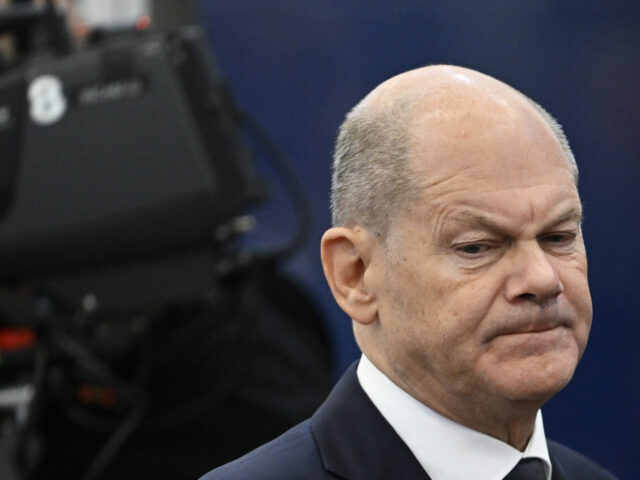Germany will elect its next government seven months early as the precarious “progressive coalition” of left-wing and centrist parties collapsed last week the same day as President Donald Trump’s election.
Attempts to string out the dying days of Germany’s zombie government into Spring 2025 appear to have failed, with left-wing Chancellor Olaf Scholz relenting and saying he would not now stand in the way of a snap election at any time, even before Christmas. As it is, a form of compromise has been called which would see a new Bundestag (parliament) decided seven months early, but with a long enough election campaign for the competing parties to try and reach out to voters.
The largest parties have agreed to hold the snap election on February 23rd, a confirming date being held on December 16th. Per German broadsheet Die Welt, smaller parties that had been part of the now-collapsed coalition also agree to the date. In other words, the starting pistol on the German election campaign race has begun.
Despite the collapse of the German traffic-light government — so called because of the colours of the ‘red’ Social Democrats, the ‘Yellow’ of the liberal Free Democrats, and the Green Party that supported it — Chancellor Scholz had initially pushed to keep it limping on for months more. Earlier incarnations of the snap election plan wouldn’t have seen the Vote of No Confidence moved in Parliament until next year, meaning an election possibly as late as early April, a full five months away.
But after the other parties in parliament made clear they wouldn’t stand for that and would even boycott the business of parliament until an earlier election was called, Scholz eventually relented, telling German television on Sunday: “I am not clinging on to my post” and that an election this year before Christmas, even, could happen.
Evidently the other parties felt they needed more time to get themselves into election campaign mode, write manifestos, and sell them to the public, and the compromise date emerged.
The German coalition government collapsed last week. It had been evidently running into trouble for a long time over high levels of government debt. The liberal FDP controlled the treasury and complained massive levels of spending producing debt that broke federal rules was unconstitutional, with the finance minister eventually being dismissed and the party thrown out of government, depriving it of enough votes to pass laws.
Yet another factor that brought matters to a head last Wednesday was the news emerging from the United States that former President Donald Trump was to be President-elect again. As reported last week, this made resolving Germany’s fiscal calamity more urgent, as Chancellor Scholz stated it was important Berlin should be able to show Washington it was an ally that “can be relied on”.
Present polling shows the Christian Democrats, the centre-right establishment party once led by Chancellor Angela Merkel during the extreme open borders era, stands head-and-shoulders above all other parties in German politics but is well short of winning an outright majority to command the Bundestag and form a government alone.
The second party — per polls — is the populist-right Alternative for Germany (AfD) but they have fallen from historic highs earlier this year.
The outgoing coalition members of the Social Democrats, Greens, and Free Democrats have all seen their poll ratings seriously harmed by their time in government, with the FDP even polling lower than newly-established left-populist faction the Sahra Wagenknecht Alliance (BSW), which promotes strict border control and a generous welfare state for Germans.

COMMENTS
Please let us know if you're having issues with commenting.